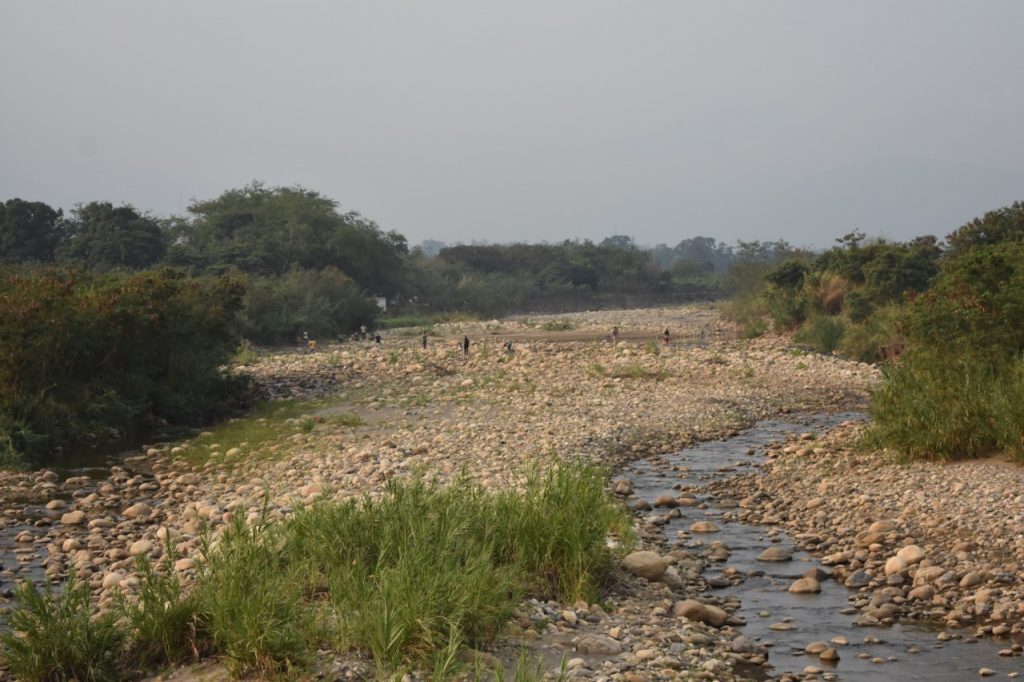
Venezuelan opposition leader Juan Guaidó met US President Mike Pence in Bogotá yesterday to discuss possible responses to the violent clashes that occurred over the weekend. Guaidó, who is recognised by the US as interim leader of Venezuela, claimed that the excessive violence ordered by Venezuelan President Nicolás Maduro required an international response and that “all options” be considered.
The high-level talks were brokered and attended by Colombian President Iván Duque and, although the summit was held behind closed doors, the leaders gave statements in Bogotá.
“What brings us together today is the recognition, by all the nations gathered here, that Nicolas Maduro is an usurper with no legitimate claim to power, and Nicolás Maduro must go”, Pence said yesterday in prepared remarks to members of the Lima Group.
The US Vice President also announced new sanctions on Maduro’s government, which are likely to affect the country’s most vulnerable citizens. Previous sanctions have to date had little effect on Maduro’s standing in the country.
Guaidó retains the support of The Lima Group, an alliance of Latin American countries opposed to Maduro, as well as many Western nations. This morning he reiterated his close alliance with the Trump administration and, in a tweet this morning, thanked President Trump for his continued support “for the recovery of democracy in Venezuela.”
Much like US President Donald Trump, Guaidó has not yet explicitly ruled out a military intervention by the US and other supporting nations. The EU and the UN have repeatedly pressed for a peaceful restoration to peace without the use of outside military force.
The EU’s Policy chief Federica Mogherini for one issued a statement saying that “we reiterate our firm rejection and condemnation of violence and of any initiatives that can further destabilise the region.”

A weekend of violence does little to abate migrant crossings
Having arrived in Colombia on Friday, Guaidó attended a concert organised by Richard Branson in an attempt to draw attention to the humanitarian crisis that has now seen millions displaced and seeking a better future outside the country.
The following day was reserved for protests and was seen as an attempt to test the Venezuelan army’s loyalties by trying to get trucks of humanitarian aid–provided by the US and other allies–through key checkpoints along the border with Colombia and Brazil.
In spite of the protesters’ best efforts, none of the trucks were able to make it through to Venezuela and now remain in storage in the border city of Cúcuta. Furthermore, around 200 members have defected from the Venezuelan armed forces, according to Vice President Pence, but it has still had little impact on Maduro’s grip on power in the country.
Meanwhile, violence continues along the Colombia-Venezuela border despite frosty political relations between the two nations. The border crossings remain closed but this has not stopped the sporadic violence between protesters and Venezuelan authorities.
Sources at Simón Bolivar bridge have told The Bogotá Post that there remains clashes that have spilled over onto the banks of the Táchira river. The fighting along the river is made possible by the low water levels during the dry season.
However, the violence has not diminished the urge to leave Venezuela’s crisis-stricken streets as migrants continue to cross the Táchira river to Colombia. The crossing usually costs migrants $30,000 COP and is a hefty price for many Venezuelans to pay. Nor is it realistic for the many Venezuelan nationals that cross the bridge to buy groceries or receive healthcare.





